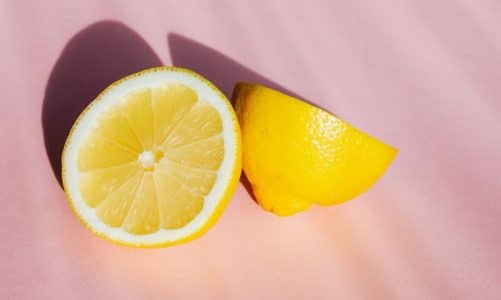It is always a good idea to get us much of your natural vitamin C from a balanced diet consisting of a variety of citrus fruits and vegetables. Because vitamin C is a water-soluble nutrient, much of what the body doesn’t need gets excreted via the kidneys and urine. Our bodies do not produce this nutrient and so we need to get as much of it on a daily basis from the food we eat. The problem is that much of our food sources today have become nutrient-depleted. Fruits and veggies grown decades ago had abundant levels of vitamins and minerals compared to today.
Modern agricultural methods of today have largely concentrated on the production of larger yielding, pest resistant, and climate adaptable crops rather than nutrient-rich food. This has essentially stripped the soil of many of the important nutrients, from which our food sources draw its life. There have been declining levels of most vitamins and minerals in our fresh vegetables across the board.
The Organics Consumer Association cites studies that show that vitamin C levels dropped by an average of 30% between 1975 and 1997.
Making matters worse is the fact that the average American diet consists of processed, refined grains and way too much sugar. Your best bet is to buy organic as much as possible and from local farmers in your own area.
Many people are turning to vitamin C supplements to fill the gap. Many of these supplements contain naturally occurring vitamin C found in food. Botanical superfruit sources, like the Acerola cherry and the Camu Camu berry, are super rich in vitamin C content. Compared to an orange, the Camu Camu berry contains 30 to 60 times as much vitamin C. These fruits are anti-inflammatory, help increase memory and focus, tone muscles, improve vision, and are antibacterial and antiviral. Other rich natural sources of vitamin C include guavas, peppers, strawberries, papayas, and litchis.
All these natural and organic vitamin C sources are available today as tea infusions, wholefood sourced supplements, and super-fruit powders.
But before you jump on the vitamin C supplement bandwagon, consider these natural plant sources first. You have a good selection of choices when it comes to sourcing natural vitamin C.
Did you know the juice of one lemon gives you 58 mg of vitamin C a day alone?
8 Natural vitamin C sources
Here are some fruits that are loaded with natural vitamin C.
- Kakadu Plums
- This Australian superfruit is packed with vitamin C. One little green plum alone gives you 481 mg of vitamin C, which is 530% of the daily value you need.
- Acerola cherries
- Half a cup (about 50grams) of this little fruit gives you over 900% of your daily value for vitamin C.
- Rose Hips
- A favorite natural vitamin C source, about 6 rosehip fruits will give you around 130 % of your daily values for vitamin C.
- Guavas
- The humble guava is also rich in vitamin C and gives you around 140% of your daily value for vitamin C.
- Kiwis
- Rich in vitamin C, one medium kiwi fruit gives you 78 % of your daily value for vitamin C.
- Lemons
- The all-favorite lemon will give you 92% of your daily value for vitamin C.
- Oranges
- One medium-sized orange gives you 78% of your daily value for vitamin C.
- Strawberries
- One cup of strawberries will give you 89 mg of vitamin C.
Make sure you get enough vitamin C from natural sources
There are different recommendations set by different health institutions. All of them give a basic guideline of the RDA for vitamin C. The National Institutes of Health (NIH) recommends 90 mg per day for adult males and 75 mg for female adults. Smokers need to up their intake with an average of 35 mg more a day. Lactating mothers need to take 120 mg of vitamin C a day.
The Linus Pauling Institute recommends a higher daily intake of 400 mg/day of vitamin C for generally healthy adults.
Forms of Natural Vitamin C supplements
Wholefood forms of vitamin C are essentially natural sources of vitamin C derived from plants. It is available in supplement form. The best wholefood vitamin C supplement forms involve air-drying the fruits first, followed by water extraction, testing, and encapsulation. Organic fruits and veggies like kale, spinach, pomegranates, and berries are often sourced and concentrated to create whole-food supplements. Wholefood extracted vitamin C supplements come in tablet and powder forms. Look for a whole food product that contains a mix or blend of fruits and veggies. Powder forms can easily be mixed into smoothies for an early morning pick-me-up or afternoon boost.
Consider this when choosing a natural Vitamin C supplement
When looking for a natural vitamin C supplement, get into the habit to read the back label with all the listed ingredients. Apart from the listed ascorbic acid or vitamin C, check for fillers or other questionable ingredients. For peace of mind, look for an official USDA organic seal. It may either state 100% organic or just organic, which means the product contains a minimum of 95% organic material.
Organic vitamin C is usually sourced from non-GMO ingredients. Here are nasties you want to avoid:
- Free from additives
- 100% organic
- Non-GMO
- Sugar-free
- Free from harmful contaminants
- Controlled tested
- Close to 100 % of the Daily Value as possible.
- Ideally third-party certified
- Ideally nutrient potent due to freeze-drying and raw extraction
- Not contain synthetic vitamin C
- Pullulan free
Last thoughts on where to get natural vitamin C from?
Natural vitamin C should ideally be obtained from food sources such as citrus fruits and vegetables. Even though fruits and veggies are not as healthy or nutrient-rich as they were decades ago, they still contain important fiber, nutrients, and phytochemicals.
Generally, the aim should be to eat as many fresh fruits and vegetables as daily, but when this is not possible, then supplementing with a natural vitamin C is your best bet. Buying local and sourcing organic produce has its advantages now more than ever to maintain optimum health. Growing your own indoor citrus tree can be a fun and rewarding way to harvest your own vitamin C.
Taking dietary supplements should always be done alongside the guidance of a medical practitioner. This article was not written or overseen by a medical professional and should not be viewed as advice or diagnostic information.
Others enjoyed these articles too:
Which essential oil contains vitamin C?
How to improve the efficacy of vitamin C.
What are the best organic vitamin C supplements for babies?
The best vitamin C face washes for brighter skin.
Can I take vitamin C supplements with or without food?
Cautionary note: Not any of these statements have been evaluated by the Food and Drug Administration. The content of the articles and the products recommended are not intended to diagnose, treat, cure or prevent any disease or health issue. The intention is also not to imply that vitamins or any dietary supplements are substitutes for a balanced diet or are in any way more beneficial or superior to dietary nutrients. It is also not intended to imply that general or normal health may be affected by not taking dietary supplements or receiving intravenous vitamin C infusions.



